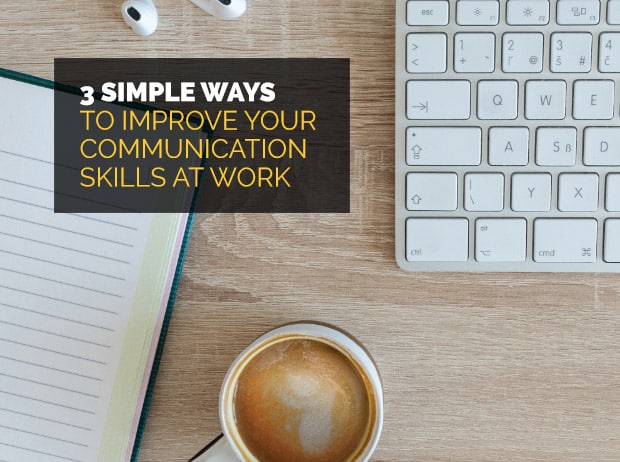Various titles I considered for this article include: “I’m not psychic, and neither are you”, “your stakeholders won’t know if you don’t tell them,” and “heyeayeayeayea, heyeayeayea, I said hey, what the heck is going on?” It was a close call, but at the end of the day, search engine optimization won out.
Improving my communication skills has been a recent goal of mine along with ‘say no more often,’ and ‘improve all the workflows!’ Given that Brian Tracy describes it as a skill that anyone can learn, “like a bicycle or typing,” and that Richard Branson says that it’s “the most effective skill any leader can possess,” improving my communication skills seemed the best place to start.
I’m a writer; I should know how to communicate, right? Well, to some extent. When I found myself saying, “I’m not psychic” and “why are you all acting like I don’t have a plan?” several times a week, I realized that part of the problem was me. And it was time to do something about it.
I spent three weeks trying to improve my communications skills. Here are three things that worked for me:
Pick the right channel
If you’ve ever uttered the words, “it was in my weekly report,” “I sent you an email,” or, “I posted it in Slack” and were met a blank look, then chances are you’re not meeting your stakeholders where they are. In an ideal world, we’d all receive communication the way we wanted to. But when you’re working with multiple stakeholders, it’s not that easy.
For me, a quick chat with an old boss did the trick, “Start off by deciding as a team how you manage your communications and set ground rules,” she advised. “If you want to keep track of an important task, document it in a tool like Trello or Jira. If you want to keep track of project components, use a system like Confluence or Basecamp. If you need to ping someone about a meeting, use Slack. If you want to get everyone on the same page, set up a meeting.”
Once I started to change the way I communicated, it became easier to keep people on the same page, and fewer balls were dropped. People got on board with plans because they knew what the plans were and where to find them.
Ask more questions
Over the last couple of months, I’ve had the same meeting three times with a (chatty) freelance client. They talked about the project they were working on; I gave some ideas about how we could promote it. Then we did it again. And again. After the second meeting, I started to ask myself what I was doing wrong. After the third meeting, I started pulling my hair out.
I found my solution while working on another project with a fellow writer. Before heading out to interview people, he created a document full of strategic questions to guide the conversation. They were way more than I’d expected. “You don’t use all the tools in your toolkit,” he explained, “but you never know when you’re going to need one.”
When I began to prepare and ask strategic questions, things became a lot clearer. By asking for clarity, I got a better idea of what my client wanted, and the client felt like they were being heard. By asking questions, I got clarity around action items, deadlines, and cost. Where’s my ‘that was easy’ button?
If in doubt, pick up the phone
I’ve been watching old DVDs of Sex and the City recently. Not just because I’ve canceled my Netflix subscription to save a bit of money, but also because I’ve been hankering for an easier time. I’m surprised how much this show has dated, how annoying the characters are, how they all survived without cell phones, or email, or Uber.
But there’s something to be said for simplicity, and although dated, the show’s not without its lessons. (I’m helping you justify rewatching it too). When Carrie Bradshaw needs to communicate, she simply picks up the telephone (it’s wired!) and speaks to someone. It’s really that simple.
Making a phone call allows you to make a better assessment of a situation than you can possibly make in an email. Phone calls can prevent people from getting the wrong end of the stick, and they make sure that the person picked up the stick in the first place.
Do you have any tips for improving communication? We’d love to hear from you. Let us know in the comments below!
